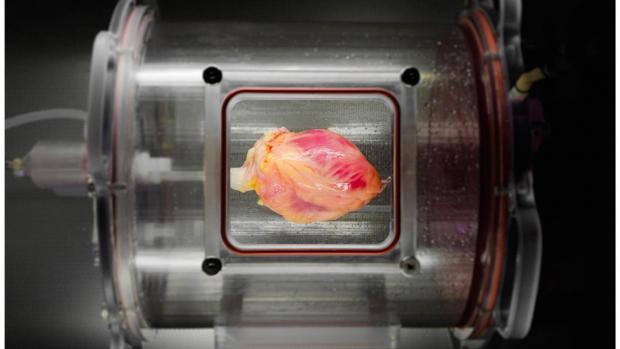
Breaking News
 China Will Close the Semiconductor Gap After EUV Lithography Breakthrough
China Will Close the Semiconductor Gap After EUV Lithography Breakthrough
 The Five Big Lies of Vaccinology
The Five Big Lies of Vaccinology
 Large global study analyzing data from 192 countries has sparked intense debate by suggesting...
Large global study analyzing data from 192 countries has sparked intense debate by suggesting...
Top Tech News
 EngineAI T800: Born to Disrupt! #EngineAI #robotics #newtechnology #newproduct
EngineAI T800: Born to Disrupt! #EngineAI #robotics #newtechnology #newproduct
 This Silicon Anode Breakthrough Could Mark A Turning Point For EV Batteries [Update]
This Silicon Anode Breakthrough Could Mark A Turning Point For EV Batteries [Update]
 Travel gadget promises to dry and iron your clothes – totally hands-free
Travel gadget promises to dry and iron your clothes – totally hands-free
 Perfect Aircrete, Kitchen Ingredients.
Perfect Aircrete, Kitchen Ingredients.
 Futuristic pixel-raising display lets you feel what's onscreen
Futuristic pixel-raising display lets you feel what's onscreen
 Cutting-Edge Facility Generates Pure Water and Hydrogen Fuel from Seawater for Mere Pennies
Cutting-Edge Facility Generates Pure Water and Hydrogen Fuel from Seawater for Mere Pennies
 This tiny dev board is packed with features for ambitious makers
This tiny dev board is packed with features for ambitious makers
 Scientists Discover Gel to Regrow Tooth Enamel
Scientists Discover Gel to Regrow Tooth Enamel
 Vitamin C and Dandelion Root Killing Cancer Cells -- as Former CDC Director Calls for COVID-19...
Vitamin C and Dandelion Root Killing Cancer Cells -- as Former CDC Director Calls for COVID-19...
 Galactic Brain: US firm plans space-based data centers, power grid to challenge China
Galactic Brain: US firm plans space-based data centers, power grid to challenge China
Stripping donor hearts and repopulating them with recipient-derived stem cells

In an effort to ensure a steady supply of compatible organs, a team of scientists from Massachusetts General Hospital (MGH) is working on ways to create bioengineered human hearts by first stripping donor hearts of cells that could provoke an immune response in a potential recipient, and then using the recipient's own induced pluripotent stem cells (iPSCs) to generate cardiac muscle cells that can be used to repopulate the heart in an automated bioreactor system.
Every year, 800,000 people worldwide have heart conditions that require a transplant. Unfortunately, there are only enough suitable donor hearts for around 3,500 operations. Part of the reason for this isn't that there aren't enough healthy hearts donated to go around, but that a heart needs to be biologically compatible with the recipient.
And even if there is an extremely close tissue match, the recipient's body will treat still the new heart as alien and attack it. To prevent this tissue rejection, the recipient's autoimmune system must be suppressed by a battery of pills for a lifetime, combined with another battery of pills to correct the damage caused by suppressing the immune system.

 This is why RAM costs so much
This is why RAM costs so much

